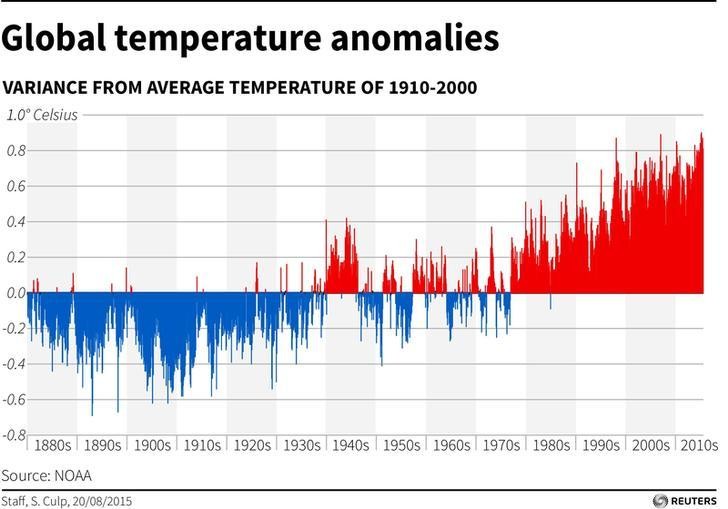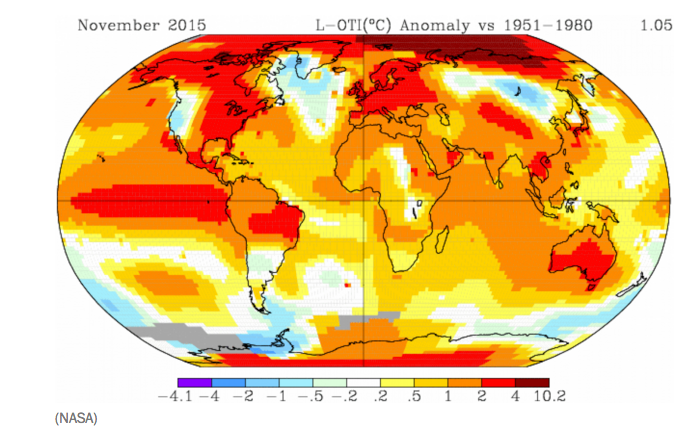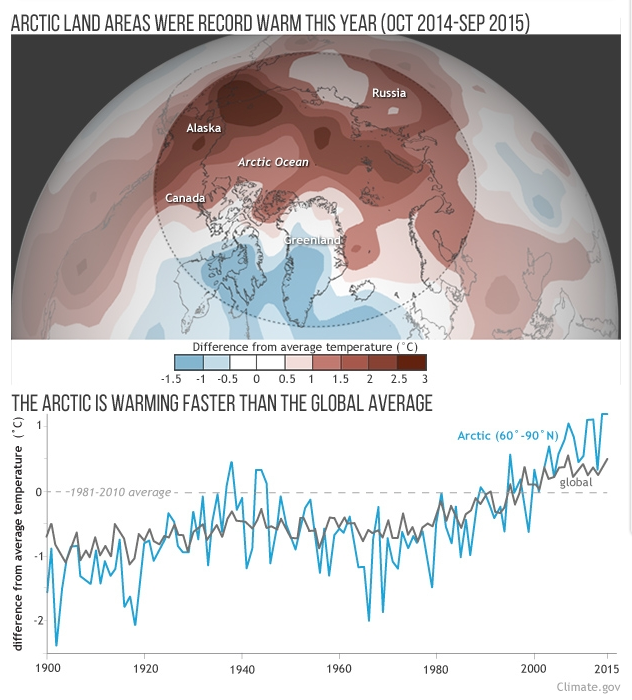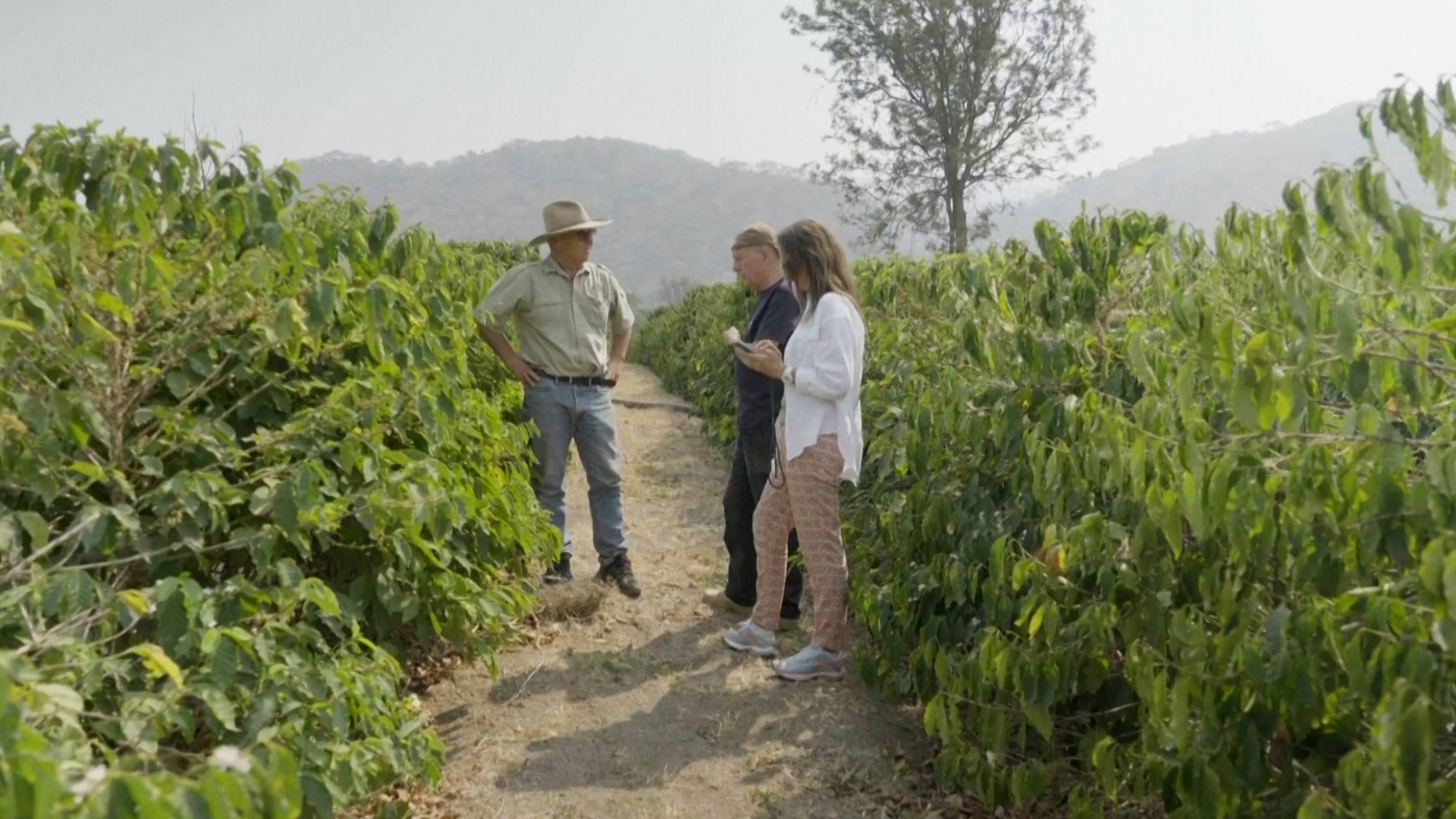Climate change: can we go from words to action?

Hot mess ... land temperatures have warmed nearly 1°C in the past 50 years Image: REUTERS/Nacho Doce

Get involved with our crowdsourced digital platform to deliver impact at scale
Stay up to date:
Future of the Environment
Global environment and resource security is probably the most widely recognized challenge facing the world today. In fact, for the past couple of years, climate change and water scarcity have been identified as the world's top global risks in the Global Risks Report.
There is broad consensus that humans have played a large part in creating this challenge, and that the Earth’s average land temperature has warmed nearly 1°C in the past 50 years as a result of human activity.

Global greenhouse gas emissions have grown by nearly 80% since 1970 and atmospheric concentrations of the major greenhouse gases are at their highest level in 800,000 years.

What is the impact?
We're already seeing and feeling the impacts of this warming. Ocean temperatures have been rising faster than the long-term average for the past three decades. Average sea levels are rising 3mm a year, faster than any time in the past 2,000 years.
Summer Arctic sea ice has now shrunk by 40% compared to the early 1970s, resulting in warmer Arctic air. This is disturbing wider atmospheric circulation patterns, such as the gulf stream (ocean currents) and the jet stream (air currents).

Scientists are increasingly concerned that these impacts may be resulting in more intense and more frequent weather events such as droughts, storms and changing rainfall patterns. Insurers estimate that since the 1980s weather-related economic loss events have tripled.
Policy-makers have been advised by the Intergovernmental Panel on Climate Change that there is a high risk of catastrophic climate change if warming is not limited to 2°C.
What can the Paris Agreement do?
The historic agreement reached in Paris in December 2015 outlines a global agreement to keep warming to 2°C and to strive to limit global temperature rise to 1.5°C.
Under the agreement, every country will implement its own climate action plan that will be reviewed in 2018 and then every five years to ratchet up ambition levels. Wealthier countries also committed to deliver significant flows of money and technical support to help poor countries cope with curbing their greenhouse gas emissions and adapt to climate change.
The world has agreed what is to be done. Now it is time for implementation.
How serious is water scarcity?
Roughly one-third of the world’s population now lives in water-stressed areas and nearly 1 billion people don't have access to safe drinking water. Depleted reservoirs and dusty river beds are obvious symptoms but another piece of the water puzzle is unseen below our feet.
More than 95% of Earth’s liquid freshwater is stored in underground aquifers and this groundwater is being used far more quickly than it is being replenished.

The World Bank predicts that global food production will need to increase by 50% by 2050. Considering that agriculture accounts for about 70% of global water consumption, the consequences could quickly become dire.
Beyond water for food and drink, growing manufacturing and consumer markets are heightening the demand for water to produce electricity, mine minerals, make products and process fuel.
The International Energy Agency projects that within the next 20 years, water consumption for generating energy will need to increase by 85%.
What are the other challenges?
The scientific concept of "planetary boundaries" has climate change and water use as two of nine interconnected environmental boundaries within which the world must remain if the planet is to be sustainable.
Work published in the journal Science in 2015 suggested that climate change is one of four boundaries that have now been crossed. The other three are biodiversity loss, land system change (such as deforestation) and altered biochemical cycles caused by pollution.
What is the World Economic Forum doing about it?
The Forum aims to turn the historic Paris climate agreement into a specific agenda for public-private action. It is working to identify the key strategic environmental issues where progress is needed. Examples include scaling clean energy, sustainable land use, sustainable water use and sustainable ocean management. The result will be a public-private action plan to deliver measurable progress by 2020.
Click here for more information on the Forum's Global Challenge on Environment and Resource Security.
Don't miss any update on this topic
Create a free account and access your personalized content collection with our latest publications and analyses.
License and Republishing
World Economic Forum articles may be republished in accordance with the Creative Commons Attribution-NonCommercial-NoDerivatives 4.0 International Public License, and in accordance with our Terms of Use.
The views expressed in this article are those of the author alone and not the World Economic Forum.
Related topics:
The Agenda Weekly
A weekly update of the most important issues driving the global agenda
You can unsubscribe at any time using the link in our emails. For more details, review our privacy policy.
More on Nature and BiodiversitySee all
Lena McKnight and Stefan Fahrni
May 2, 2024
Cristen Hemingway Jaynes
April 30, 2024
Robin Pomeroy and Linda Lacina
April 29, 2024
Greg Goodwin and John Stackhouse
April 29, 2024






